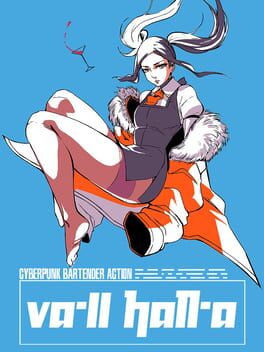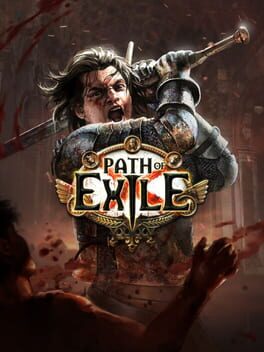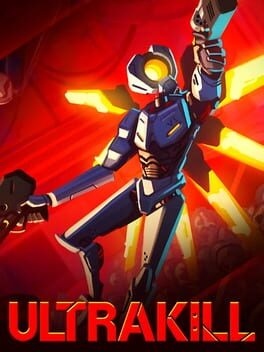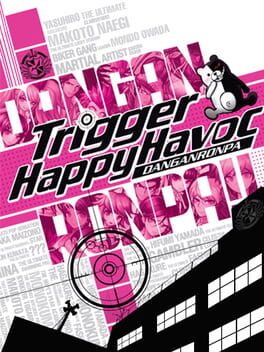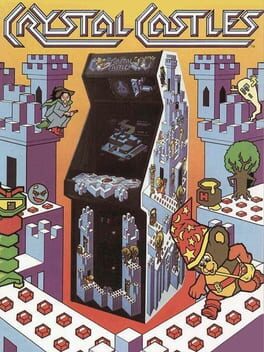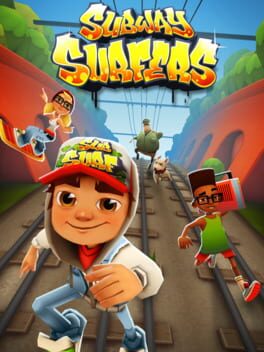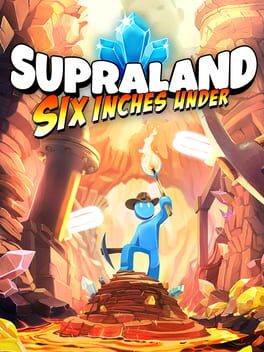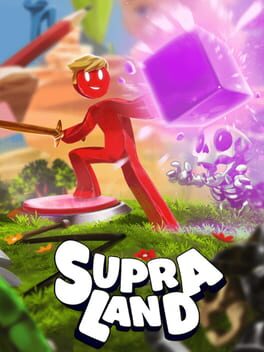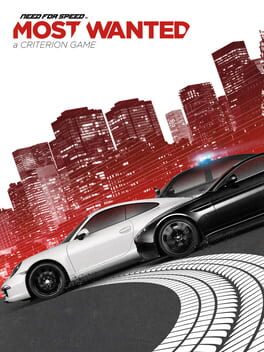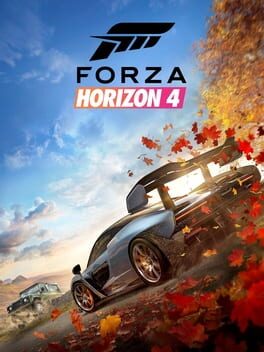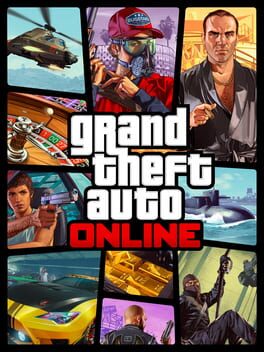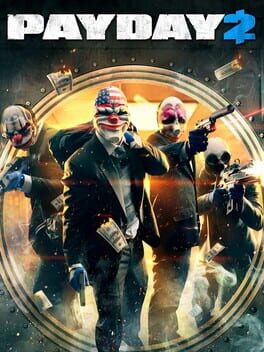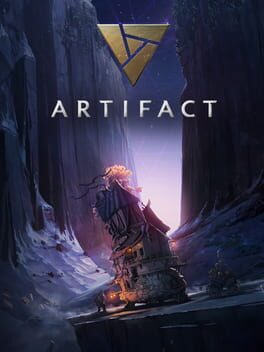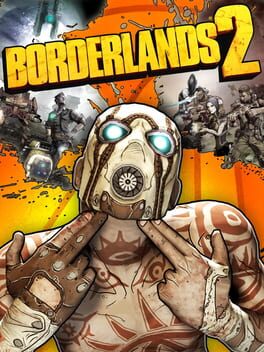homefires
2013
A very difficult game to evaluate. An easy target for the "it gets good after 1000 hours" joke, but I don't think it really deserves that. You can just play through the main campaign and it's pretty fun! I'm not too familiar with this genre so my opinion on it all might not be very nuanced in comparison to others, but I really enjoyed everything it had to offer. It's fun to play, has an engaging world and story, and a nice dark fantasy aesthetic. Taken on its own I'd probably rate it around a 3.5/5? It's not without problems but it has a lot of cool things to offer.
With that all out of the way, we can get to the rest. Most people approaching this game aren't doing it for the "campaign", but for everything that comes after. The reality of Path of Exile is the result of a decade of mutation as a "games as a service" product. I can't even say that the story portion is separate from that, considering how it has expanded over the years and changes constantly with each new expansion.
The constant drive to expand and grow comes at the cost of the casual experience of this game, and the knowledge of the post-game content that is designed to drive constant engagement sours the preceding experience. This game is one of the worst examples of complexity creep in a video game ever, and it poisons every step of your experience with it.
If you want to just experience the campaign like I suggested at the beginning of my review, you're still inevitably burdened with trying to understand all the systems designed to support the late game. Leveling up for the first time and looking at the skill tree makes you feel like the protagonist of a Lovecraftian horror story, viewing unknowable geometries and going insane on the spot.
That all being said, the complexity is not an accident, it's a core part of the forces driving this game's success. If you buy into it, the mechanical absurdity is practically the point.It all comes together to support the true nature of Path of Exile, a game designed to be endlessly playable. Grind to progress the late game, grind to level up, grind to buy or craft new gear, grind to simply get richer and richer. No matter what it is you want, there's always at least 3 or more ways to do it so that you never have to get bored of any one mechanic. It reminds me of a casino, all lights, noise, and promise of rewards.
As a side note, a strange aspect of Path of Exile compared to other games that fill a similar niche is that it does seem to be a little self aware of its nature. The post game story continues to explore the destruction the player character brings about in their perpetual pursuit of wealth and power. The characters that join to help you all inevitably end up worse off for it. There's no true consequences or payoff to it all, but I could be convinced it all stands as a metaphor for the game's constant expansion or the player's own descent into eternal pointless scaling. I don't think it excuses the game but I do find it interesting.
I got really pulled into this loop around when I started college, and while I "enjoyed" it in the moment but after the smoke cleared I didn't really get anything from it other than a lingering feeling that I had been taken advantage of. Then again, I'm a much different person than I was in those days, and my perspective on gaming as a hobby has changed immensely. I'm a pretentious asshole that likes art games, instead of the repressed and awkward Gamer looking for empty distractions. For that purpose I'd rate it higher than other alternatives like competitive shooters or hard drugs. I still appreciate it for its over the top complexity and depth, even though I now resent it for what those systems support.
With that all out of the way, we can get to the rest. Most people approaching this game aren't doing it for the "campaign", but for everything that comes after. The reality of Path of Exile is the result of a decade of mutation as a "games as a service" product. I can't even say that the story portion is separate from that, considering how it has expanded over the years and changes constantly with each new expansion.
The constant drive to expand and grow comes at the cost of the casual experience of this game, and the knowledge of the post-game content that is designed to drive constant engagement sours the preceding experience. This game is one of the worst examples of complexity creep in a video game ever, and it poisons every step of your experience with it.
If you want to just experience the campaign like I suggested at the beginning of my review, you're still inevitably burdened with trying to understand all the systems designed to support the late game. Leveling up for the first time and looking at the skill tree makes you feel like the protagonist of a Lovecraftian horror story, viewing unknowable geometries and going insane on the spot.
That all being said, the complexity is not an accident, it's a core part of the forces driving this game's success. If you buy into it, the mechanical absurdity is practically the point.It all comes together to support the true nature of Path of Exile, a game designed to be endlessly playable. Grind to progress the late game, grind to level up, grind to buy or craft new gear, grind to simply get richer and richer. No matter what it is you want, there's always at least 3 or more ways to do it so that you never have to get bored of any one mechanic. It reminds me of a casino, all lights, noise, and promise of rewards.
As a side note, a strange aspect of Path of Exile compared to other games that fill a similar niche is that it does seem to be a little self aware of its nature. The post game story continues to explore the destruction the player character brings about in their perpetual pursuit of wealth and power. The characters that join to help you all inevitably end up worse off for it. There's no true consequences or payoff to it all, but I could be convinced it all stands as a metaphor for the game's constant expansion or the player's own descent into eternal pointless scaling. I don't think it excuses the game but I do find it interesting.
I got really pulled into this loop around when I started college, and while I "enjoyed" it in the moment but after the smoke cleared I didn't really get anything from it other than a lingering feeling that I had been taken advantage of. Then again, I'm a much different person than I was in those days, and my perspective on gaming as a hobby has changed immensely. I'm a pretentious asshole that likes art games, instead of the repressed and awkward Gamer looking for empty distractions. For that purpose I'd rate it higher than other alternatives like competitive shooters or hard drugs. I still appreciate it for its over the top complexity and depth, even though I now resent it for what those systems support.
2020
Conceptually it's the "thing I like + other thing I like" indie game cliche, but it's executed so well that it transcends its influences and creates a strong identity of its own. All the great aspects of character action games and retro shooters combined in a way that sidesteps the typical downfalls of either.
My only complaint is that it doesn't lend itself well to the Early Access release strategy. Every time an update comes out and I start it up again I get crushed by the difficulty scaling in the new content as I struggle to get a grip on the mechanics all over again. Probably will be best played all at once when it's actually finished.
My only complaint is that it doesn't lend itself well to the Early Access release strategy. Every time an update comes out and I start it up again I get crushed by the difficulty scaling in the new content as I struggle to get a grip on the mechanics all over again. Probably will be best played all at once when it's actually finished.
I can see the appeal of this. Playing it at all did eventually lead me to the Ace Attorney series which I have been enjoying a ton. The visual presentation is very appealing and memorable, and at first that convinced me that is find something to like here. In the end I can't really tolerate this at all though.
I'm not too familiar with this genre yet, but with my limited knowledge I'm not a fan of this game on a design level. A lot of the trial mechanics seem designed to try and give it "gameplay" and make the trials more tense, but they mostly just annoyed me. I did play the Android version for some reason, so there's a good chance I would've been less bothered if I had tried it on an actual console. Even so, for me the appeal of this genre is the combination of the story and logic, and playing shitty little minigames doesn't really add anything. The tension added doesn't feel earned.
The trial mechanics also invent an incentive for hanging out with different characters during your free time, since you get bonuses after interacting with someone enough. I like the idea of choosing which characters you interact with to learn more about them, but in practice I've never been super engaged by this kind of mechanic. The encounters have to be pretty short, and are very limited since important plot elements or character moments all get reserved for the main story. I suppose you could make the argument that these short, forced interactions are intentional and demonstrate the distrust and unease created by the situation the characters are in. I wouldn't give this game that much credit though.
The story is the hardest part of this whole thing to discuss because I didn't actually finish the game. There were characters and moments that I thought were cool, but there were never any moments were I was shocked or thrilled by any twists or left pondering about the game's deeper meaning. Maybe I was just failing to engage because of my previously mentioned problems with the game, but it didn't leave me feeling satisfied even though I wasn't hating it either.
I was enjoying it all enough to coast to the end even with my gripes until I got to Chihiro's arc. I won't even go into detail because it's genuinely fucking awful and left me pretty upset! You could argue that Chihiro isn't actually supposed to represent a trans identity but I don't think it really matters one way or another what the intent was. I played a bit past that but didn't find anything worth sticking around for, so I dropped it.
Overall, I can see why people like this series and I enjoyed a bit of it myself. However the most memorable thing I was left with here was a reminder that society generally views people like me with pity and disgust and that's not a great takeaway! It might have soured my overall view of it. Either way, I won't be returning to this.
I'm not too familiar with this genre yet, but with my limited knowledge I'm not a fan of this game on a design level. A lot of the trial mechanics seem designed to try and give it "gameplay" and make the trials more tense, but they mostly just annoyed me. I did play the Android version for some reason, so there's a good chance I would've been less bothered if I had tried it on an actual console. Even so, for me the appeal of this genre is the combination of the story and logic, and playing shitty little minigames doesn't really add anything. The tension added doesn't feel earned.
The trial mechanics also invent an incentive for hanging out with different characters during your free time, since you get bonuses after interacting with someone enough. I like the idea of choosing which characters you interact with to learn more about them, but in practice I've never been super engaged by this kind of mechanic. The encounters have to be pretty short, and are very limited since important plot elements or character moments all get reserved for the main story. I suppose you could make the argument that these short, forced interactions are intentional and demonstrate the distrust and unease created by the situation the characters are in. I wouldn't give this game that much credit though.
The story is the hardest part of this whole thing to discuss because I didn't actually finish the game. There were characters and moments that I thought were cool, but there were never any moments were I was shocked or thrilled by any twists or left pondering about the game's deeper meaning. Maybe I was just failing to engage because of my previously mentioned problems with the game, but it didn't leave me feeling satisfied even though I wasn't hating it either.
I was enjoying it all enough to coast to the end even with my gripes until I got to Chihiro's arc. I won't even go into detail because it's genuinely fucking awful and left me pretty upset! You could argue that Chihiro isn't actually supposed to represent a trans identity but I don't think it really matters one way or another what the intent was. I played a bit past that but didn't find anything worth sticking around for, so I dropped it.
Overall, I can see why people like this series and I enjoyed a bit of it myself. However the most memorable thing I was left with here was a reminder that society generally views people like me with pity and disgust and that's not a great takeaway! It might have soured my overall view of it. Either way, I won't be returning to this.
1983
2012
I hate what this represents. Playing this game makes me feel like my life force is getting sucked of me through my eyes.
I still blame Candy Crush more than anything for ruining the mobile game market, but this stands as the modern result of it. People gave games like Angry Birds and Cut the Rope shit but those were decent games targeted towards a casual audience. They were simple and fun and I think they deserve a spot in the gaming cannon just as much as anything else.
Maybe this game was also fine in a similar way when it came out, but now it feels highly engineered to squeeze out maximum profit make you addicted to it.
I still blame Candy Crush more than anything for ruining the mobile game market, but this stands as the modern result of it. People gave games like Angry Birds and Cut the Rope shit but those were decent games targeted towards a casual audience. They were simple and fun and I think they deserve a spot in the gaming cannon just as much as anything else.
Maybe this game was also fine in a similar way when it came out, but now it feels highly engineered to squeeze out maximum profit make you addicted to it.
I think this game made a lot of solid incremental improvements over the first game and I prefer it mostly. The more linear structure is a plus in my book, there's less downtime and still plenty to find off the beaten path. I liked the visual design and environments a bit better, it does a good job differentiating itself from the first game and Crash. The puzzles were more fun and the combat is mostly fixed.
It's still not perfect by any means (I really don't like the writing most of the time) but I've grown to love the formula of the series and am looking forward to seeing where they take it next.
It's still not perfect by any means (I really don't like the writing most of the time) but I've grown to love the formula of the series and am looking forward to seeing where they take it next.
2019
It's not as funny as it thinks it is and it has a lot of mechanical problems. Despite that I found it really fun to actually play. I grew to like the platforming/puzzling metroidvania style it established enough to play the rest of the series despite my issues with it. You can tell that the people working on it care a lot about what they do, and a certain charm shines through because of that. The sequel is a big improvement over this one.
I always feel insane for how much more I seem to like this compared to other people. The driving has incredible momentum behind it, it feels great and visceral! I love the way you progress each car individually with races to unlock part upgrades, it gives great incentive to play different cars rather than sticking to your best one. The open world is fun to explore with just enough going on compared to the size of it all. The multiplayer aspects were really great if you had some friends also playing it.
It's a bit stuck in the 7th gen aesthetic but I'd argue it creates a bit of a personality for itself between the soundtrack, the surreal cop chase intros, and decent environment design. It's not really out of the ordinary for a racing game like this to be a bit visually bland, I would say it's a problem for a lot of the genre and anything that escapes that really stands out.
I like this better than Burnout Paradise! Better soundtrack, better selection of event types, has cop chases. If this had been marketed as a Burnout game instead of having it bizarrely named after an existing NFS game I'm convinced it would've been much better received.
It's a bit stuck in the 7th gen aesthetic but I'd argue it creates a bit of a personality for itself between the soundtrack, the surreal cop chase intros, and decent environment design. It's not really out of the ordinary for a racing game like this to be a bit visually bland, I would say it's a problem for a lot of the genre and anything that escapes that really stands out.
I like this better than Burnout Paradise! Better soundtrack, better selection of event types, has cop chases. If this had been marketed as a Burnout game instead of having it bizarrely named after an existing NFS game I'm convinced it would've been much better received.
2018
Yeah the cars feel great to drive and it looks pretty but everything about this feels shallow. Progression doesn't feel meaningful, the game has no personality, and it all just starts blurring into an open world mush as you play it more. I really wanted to like it but after a while it just started wearing me down.
2013
2018
This game is admirable in the way that it managed to piss everyone off. For the casual player, the game's card trading and ticket system probably seemed insane in a world of free to play card games like Hearthstone. I personally didn't really mind it too much, having already gotten used to the concept playing Magic the Gathering Online (which is undoubtedly where Artifact's devs got the idea from). This was mostly a gaming equivalent of Stockholm syndrome, I think that monetizing a digital game this way is deranged and exploitative. Regardless, at the time I was willing to accept it. Valve was probably trying to target a more "core" digital TCG crowd with this anyways, the sorts of people who wouldn't mind it.
For this "core" audience, the game had to justify its existence to really gain anyone's lasting attention. At first glance, it seemed like this was the case. The game was filled with unique mechanics, most notably the fact that you manage three boards at once. I know that starting out playing it I was excited to learn how to grapple with the game's systems and learn what strategies were viable. It wasn't immediately obvious to me how fundamentally flawed it was.
I had some friends that also adopted the game early, and as we all played it we gradually all came to the same conclusion: it got worse the more we played. At a surface level it was fun to try and manage resources between three lanes, and it felt fresh to play because of how different it was from other TCGs. As you get better at the game though, you start to realize something awful.
Almost none of your choices seem to matter because so much of the game is random. Basic unit placements, attack patterns, what shows up in the shop, etc. It felt incredibly frustrating to try and strategize effectively when an unlucky roll of the dice could turn a great turn into a game losing mistake. All games like this have an inherent level of randomness, and that's what makes them so engaging and replayable. There's a fine balance between variance keeping things fresh and feeling unfair, and this game falls heavily into the second category.
I think that with a free to play model the game could've found a niche even with it's problems. I've (personally) never liked Hearthstone on a mechanical level but it found an audience since it's accessible. Artifact was based on an existing IP in the same way, but any kind of casual crossover from DOTA fans was destroyed the moment they decided on the monetization system.
This system has worked for Magic, MTGO is still online and has a seemingly pretty dedicated player base despite the existence of MTG Arena as a F2P alternative. However Magic was already proven as a game. Artifact fell apart even after just a few hours of examination.
So who was this game for? Was it for the established audience of the Dota franchise that didn't want to pay to try out something outside their typical interests? Was it for the TCG fans that would quickly discover the game's lack of depth? It's hard to tell who this was even targeting exactly, because it didn't really do a good job catering to anyone. With enough momentum it could've stuck around for long enough to refine mechanics and come out with more cards, maybe. I know they tried to overhaul the game for a while after its failure but at that point the damage was done. I think it was doomed from the start.
For this "core" audience, the game had to justify its existence to really gain anyone's lasting attention. At first glance, it seemed like this was the case. The game was filled with unique mechanics, most notably the fact that you manage three boards at once. I know that starting out playing it I was excited to learn how to grapple with the game's systems and learn what strategies were viable. It wasn't immediately obvious to me how fundamentally flawed it was.
I had some friends that also adopted the game early, and as we all played it we gradually all came to the same conclusion: it got worse the more we played. At a surface level it was fun to try and manage resources between three lanes, and it felt fresh to play because of how different it was from other TCGs. As you get better at the game though, you start to realize something awful.
Almost none of your choices seem to matter because so much of the game is random. Basic unit placements, attack patterns, what shows up in the shop, etc. It felt incredibly frustrating to try and strategize effectively when an unlucky roll of the dice could turn a great turn into a game losing mistake. All games like this have an inherent level of randomness, and that's what makes them so engaging and replayable. There's a fine balance between variance keeping things fresh and feeling unfair, and this game falls heavily into the second category.
I think that with a free to play model the game could've found a niche even with it's problems. I've (personally) never liked Hearthstone on a mechanical level but it found an audience since it's accessible. Artifact was based on an existing IP in the same way, but any kind of casual crossover from DOTA fans was destroyed the moment they decided on the monetization system.
This system has worked for Magic, MTGO is still online and has a seemingly pretty dedicated player base despite the existence of MTG Arena as a F2P alternative. However Magic was already proven as a game. Artifact fell apart even after just a few hours of examination.
So who was this game for? Was it for the established audience of the Dota franchise that didn't want to pay to try out something outside their typical interests? Was it for the TCG fans that would quickly discover the game's lack of depth? It's hard to tell who this was even targeting exactly, because it didn't really do a good job catering to anyone. With enough momentum it could've stuck around for long enough to refine mechanics and come out with more cards, maybe. I know they tried to overhaul the game for a while after its failure but at that point the damage was done. I think it was doomed from the start.
2012
Maybe the most I've played in a game I've disliked this much, which makes it hurt all the more. Most games I just drop after 2-3 hours if I can tell I won't like it, but if the gamers just wanna game I have a hard time arguing with them. Even as a social activity I have hard time enjoying this one though...

